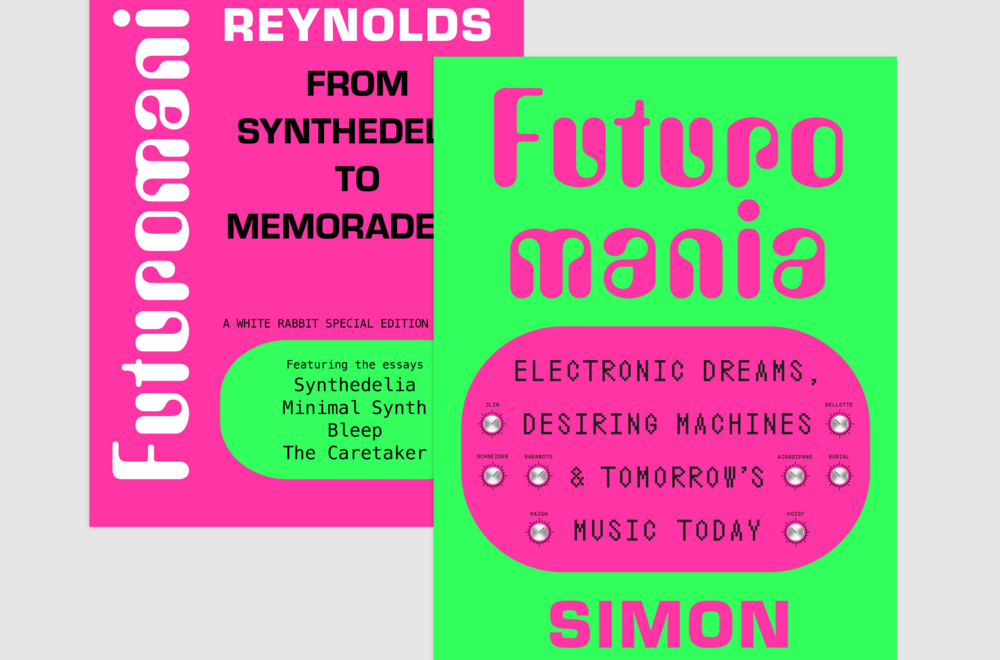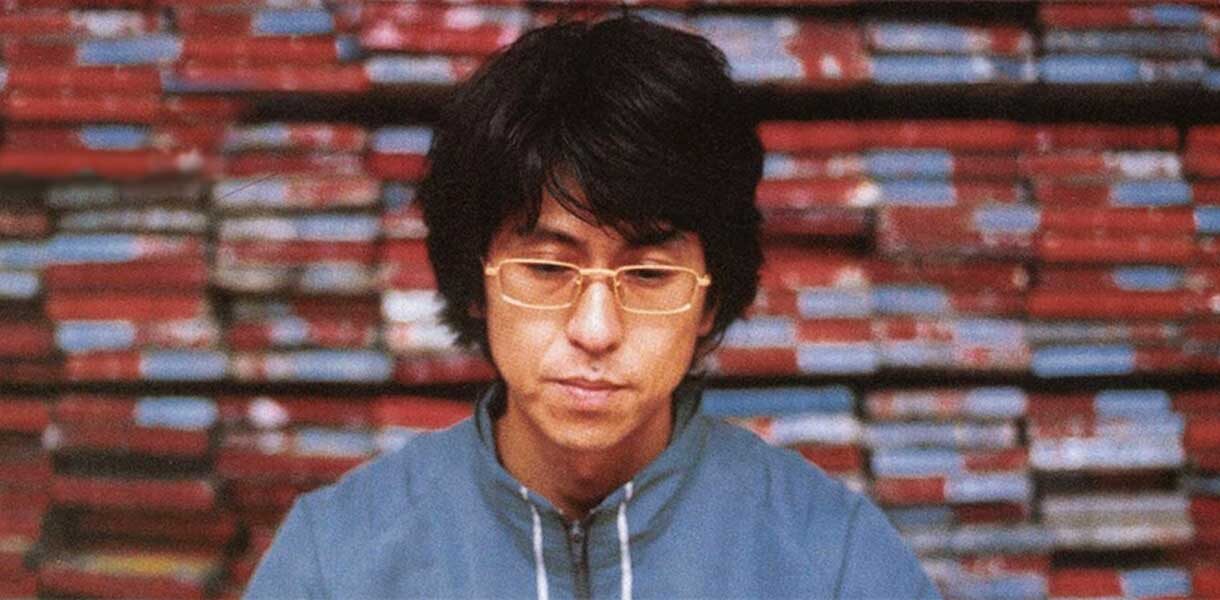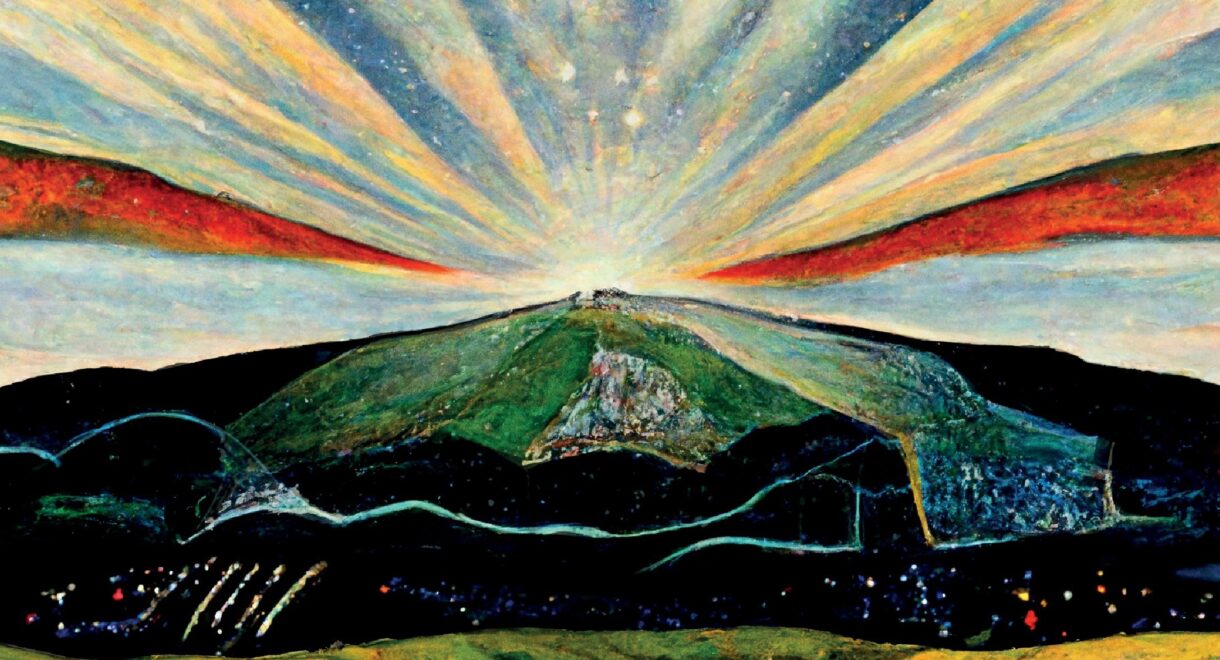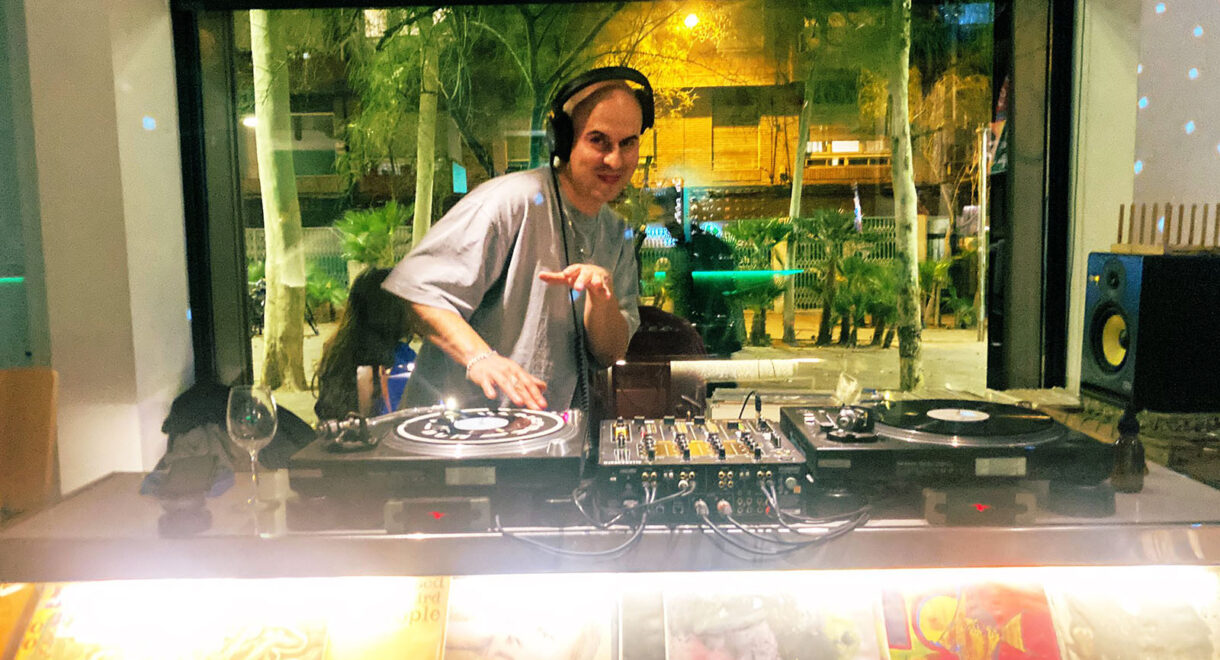The summer is halfway over and you’ve been scrolling for like, what, six weeks straight now? Step away from your phone (after reading this, of course). An analog […]
Labels We Love: Peak Oil

Peak Oil’s Brian Foote and Brion Brionson chat ’90s raves, indie rock, and faceless techno bollocks.
In the early ‘90s, rave culture exploded across the United States. Generator parties in the Midwest, Bay Area, Los Angeles, New York, and Seattle pulled thousands of dancing youths out to warehouses, barns, fields, and rundown auto plants. Massive sound systems could be heard blasting electronic music on strobe-filled dance floors almost nightly across the country. The music and parties spread via underground magazines, anonymous phone lines, and online message boards.
Self-proclaimed “old nerds” Brian Foote and Brion Brionson, founders of Los Angeles based electronic label Peak Oil, came up in these early American rave scenes. After soaking in the jungle, drum & bass, acid, IDM, techno and house music of the ‘90s raves and working at various labels, publications, and on their own music, both Brians have an almost encyclopedic knowledge of electronic dance music. While their raving days are long behind them, they’ve continued to push the sounds via their label.
Launched in 2012, Peak Oil has steadily released a string of diverse electronic releases from producers in various post-rave cities across the United States and, more recently, the world. The label has been on a hot streak recently with consecutive Philip Sherbourne-approved releases: the mysterious generative dub techno of Topdown Dialectic, followed by a gorgeous collection of ambient, IDM, and breaks by bubblin’ up Russian producer Hoavi.
For the latest edition of our “Labels We Love” series, In Sheep’s Clothing spoke to the two Brian’s about their early days raving, indie rock, faceless techno bollocks, and running a label.
We have a few final copies of Topdown Dialectic Vol 1-3 available now in the shop: https://insheepsclothinghifi.com/store
Hello Brian and Brion! How is everything going?
Brian Foote: Things are fine, just sick of COVID like everyone else.
Where did you guys first meet and how did the label come to be?
Brion Brionson: I first corresponded with Foote when I wrote for XLR8R a long time ago. I did a review of a fusion jazz band on Kranky, which Foote was in. We started emailing after that and then finally met in person when I moved to Los Angeles.
BF: Basically what happened was our partners at the time met and said “My man’s a nerd too… My man has cassettes! ” This was during the glory days of the synth scene cassette boom. We connected and then Brion mentioned that he always had this idea for a label called Peak Oil. You know how vinyl isn’t sustainable… I thought, “That’s brilliant, let’s do it.”
Where does the name Peak Oil come from?
BB: When I was living in New York I was reading about peak oil theory, which posits that society is based on infinite growth from a finite resource, petroleum. So once petroleum production has peaked, society is essentially in collapse, as petroleum is in everything. Even records.
BF: Of course, we’re well past peak oil now. As we approach the 10 year anniversary of the label, you literally can’t get a record made in a timely fashion if your life depended on it.

You’ve both been involved in indie rock and dream pop along with rave and dance music for a long time. How do those scenes intersect for each of you?
BB: I think we’re both just old… I think back to when shoegaze and dream pop were happening, labels had a strong visual identity. You knew everything on 4AD, Creation, Too Pure by sight. Not that the label superseded the band, but I found out about Long Fin Killie only because it was on Too Pure and I was into Th’ Faith Healers. I think that idea continued into rave and club culture because it was all world building, fantasy-based, and escapist. Again, you would have these labels like Warp, Rephlex, etc. that were forging these identities. So for me, at least, I was looking to labels to see what was a Mark Broom production.
BF: For me, not to always start with the “ancient” talk, but in 1989 growing up in the Midwest we’d read UK magazines like Select or NME. There was rave and there was indie in the same breath; techno intersected with the baggy/madchester thing. These bands would play shows in the UK and there would be these parties that would go on all night after. As a small town white kid who never had access to the early house scene parties in the region, I was ready and waiting for raves to come to the USA. When they did I would get to the party and think “Where are the bands? Don’t the bands start this off?” Just totally ignorant, mapping it from the pages of a magazine.
The hardcore raves of the early 90’s started happening in Milwaukee and Chicago. There was a promoter called Drop Bass Network that did the first 3-day event. I ended up helping book the chillout tent, and it would be these shoegaze bands and live electronic performances.
BB: I was lucky to grow up in the Bay Area with tons of raves, the Gardening Club and the whole Anarchic Adjustment/Fax Records/Spacetime Continuum scene. I was sneaking out of the house and school to interact with all of that. I think all that just primed me to be a huge obsessive nerd.

Peak Oil is based in Los Angeles but releases music from artists in post-rave cities across the United States. Are there specific places or scenes where these relationships were formed?
BB: I was in New York at a really exciting time. It was pre-DFA and that whole scene. It was really aggressively nerdy and very uncool back then. There was an IDM tupperware party with these guys Safety in Numbers who’d order CD’s from Switzerland or the Hague. You’d meet in a loft and listen to them. Out of that scene came Will, DFA-affiliated people, Brian Degraw from Gang Gang Dance. All that stuff bubbled up from deep nerdery.
BF: I lived in Portland for a decade when everything that happened there was cross pollinating with itself. That’s where I was in bands with Paul Dickow/Strategy, started my first electronic music label with some friends and began my relationship with Kranky.
BB: Overall, I would say it’s accidentally lazy A&R that got us where we are. Paul and Brian are good friends. The first few releases we leaned heavily on Foote’s connections and then the next few were mine. It’s been all people in the network along with some serendipitous moments.
BF: We don’t do a ton of releases so we’re going to spend our money on people who we know aren’t jackasses. It’s easier to work with friends.
BB: Also, we’re not just sending files off somewhere. We’re stamping all the records, packing them up, mailing them, and listening to them thousands of times.
Each of the label’s artists seems to have a very unique approach to sampling. One of the label’s releases even comes with a floppy disc of drum break samples. How does sampling play into the label’s identity?
BF: The sampler was my first electronic instrument and I would argue that it’s the last instrument that’s been created. Of course, it plays a huge role in what we do. Every single artist on the label is a maniac for their process. I find that charming as someone who probably spends more time on their process than actually releasing the resultant music.
In the instance of the Topdown Dialectic material, the artist didn’t want to be involved. This was an insanely common thing in the ‘90’s where the press even coined the term “faceless techno bollocks.”
How involved are you guys with the actual production of the music on the label? Do you work closely with the artists to complete the tracks or mostly hands-off?
BF: With the exception of giving feedback if we’re asked or making suggestions about track order, I’m mostly hands-off. A lot of labels these days are like “the hi-hats are too bright” but I don’t think that’s the label’s place. We try to present the artist’s work in the way they want to.
BB: Compared to Foote, I’m a little more hands on A&R wise which I think is one of the strengths of the label, this push-pull between the two Brian’s. Having appreciated Factory, 4AD, Creation and all these labels that have a strong label identity, I’ve been a little more heavy handed in providing feedback on the tracks where Brian is more heavily focused on preserving the artist’s vision.
Topdown Dialectic seems to be having a bit of a moment right now. I understand you can’t say much about the artist, but I’m curious about how those records came about? There’s a bit of mystery behind that project…
BB: It’s kind of weird, the only mystery really is that the conceptual idea behind the music is at the forefront and we don’t disclose who did it. It’s become such a thing, but I guess that’s what happens when you don’t say who it is. It’s funny that that’s the thing people latch onto. I think at one point someone asked me if I did it.
BF: Yeah, similarly people were like, “It’s you Foote.” And I’m like “Well, it’s not…” In the instance of the Topdown Dialectic material, the artist didn’t want to be involved. This was an insanely common thing in the ‘90’s where the press even coined the term “faceless techno bollocks.” No one put their name on the release and it wasn’t just because of contractual reasons or mystique. It was more like that doesn’t matter or that’s not what’s important.
Robert Pattinson is Topdown Dialectic, you heard it here first.
— patrick carey (@rarestorms) February 9, 2022
Were the tracks all originally five minutes long or were they edited down? Some of the tracks feel like they could go on forever.
BF: They were always five minute chunks and that’s to allude to the fact that they were much longer pieces or open-ended generative compositions.
Jungle, IDM, dub, techno, house — there are elements of so many different strains of dance music in the label’s releases. Was that always the idea?
BF: Brion is an insanely deep well of dance music knowledge. When I first got into it, a lot of that music was a mystery. It was all DJ mixtapes. I’d be listening to this song and Brion would say, “Oh, it’s this release from that sub-label…”
BB: I feel like the artists we work with just care a lot. I think because we’re both older, as we’ve watched scenes expand and contract over the years that we tend to appreciate music that’s more referential and thought out. It’s a bit of personal taste as well. I just don’t love sounds that sound like they’ve just come out of a computer without any intent behind them. That’s probably what makes the Topdown Dialectic records so beguiling. They obviously have a very heavy, conceptual infusion of genres.
You guys just released an incredible album by Russian producer Hoavi. How did that come about? Do you guys see the label branching out more globally?
BB: Hoavi is a hustler and just sent us demos. He has no shortage of stuff… When he originally sent us the demos, we asked if the release was set or if we could move some things around and he immediately responded with five more tracks. They were some of the best demos we’ve heard or received…
BF: We listen to demos! I think the circle is just expanding organically. If we hear something that we like, we’ll put it out. It’s the label’s ten year anniversary coming up so there’s a bunch of stuff cooking, but it’s tough to say when anything is coming out with all the supply chain stuff going on.
Website: http://cargocollective.com/peakoil
Bandcamp: https://peakoil.bandcamp.com/music










